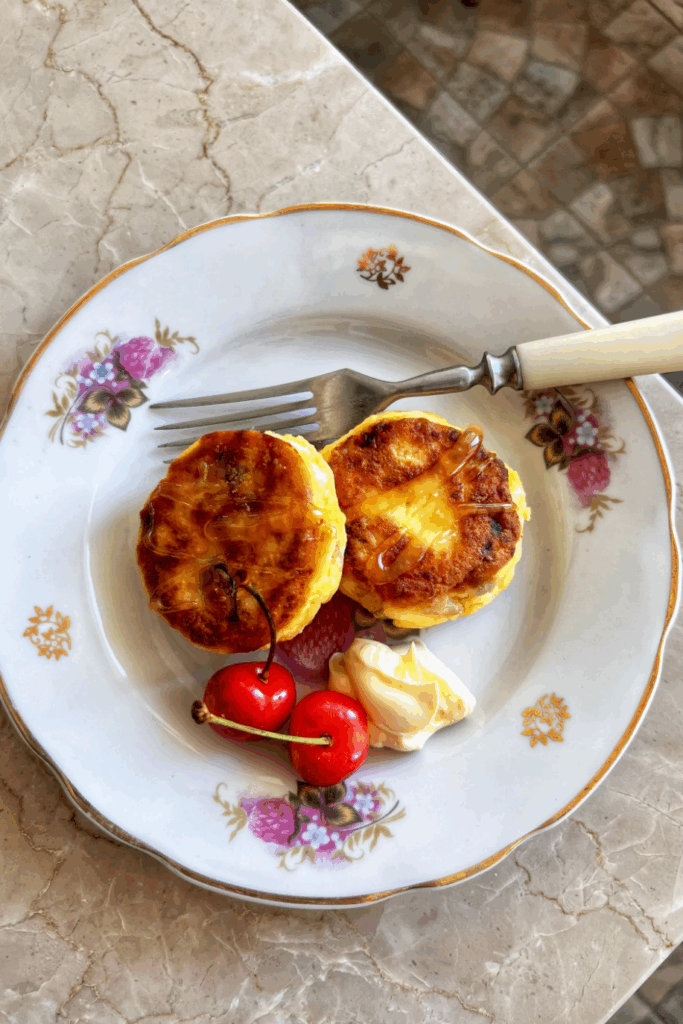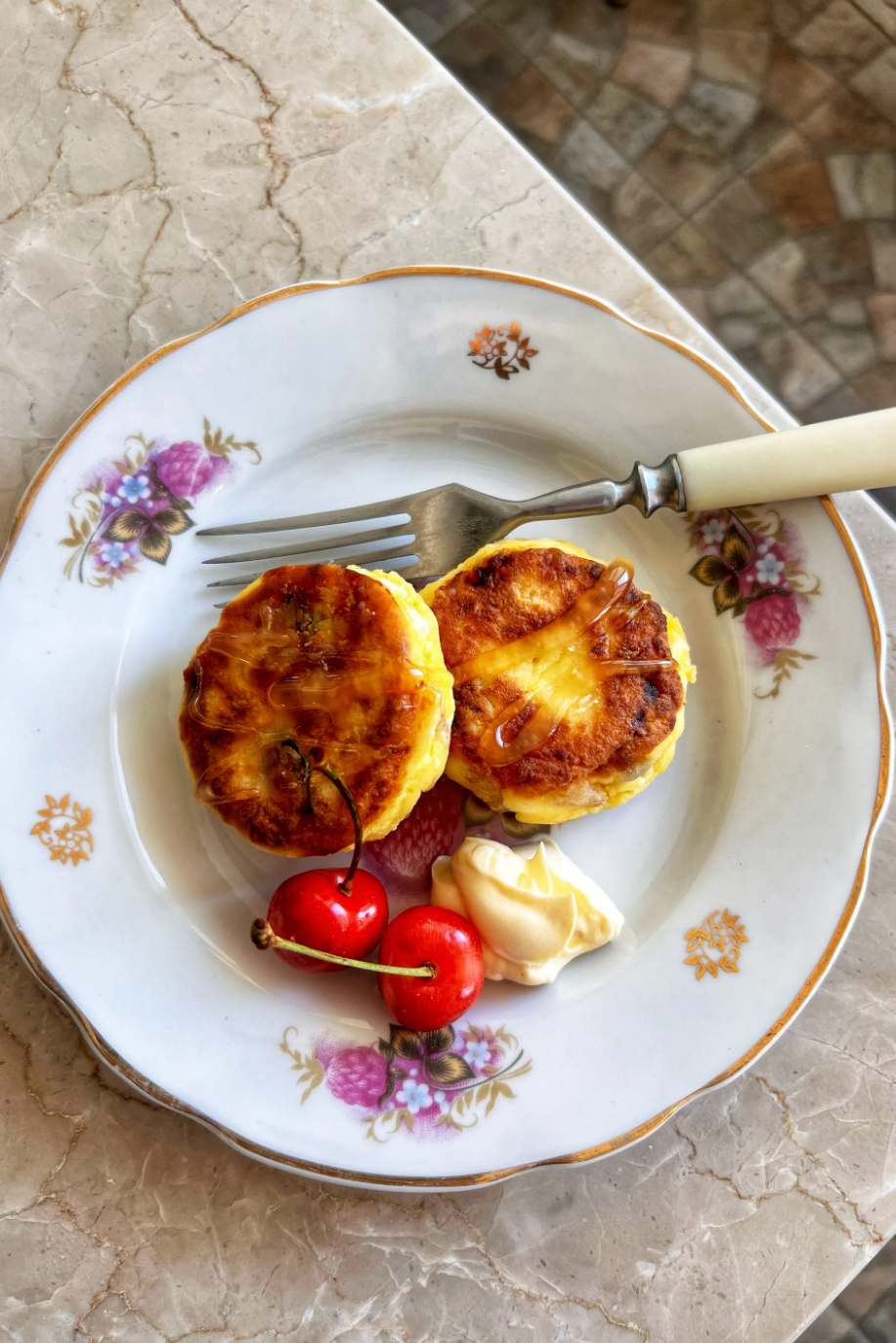Ukrainian hospitality is legendary. Even now, in the middle of a brutal war, when people are drained by years of grief and loss, they will still press jars of homemade compote or pickled tomatoes into your hands. They’ll insist you come in for “just a cup of tea” and then cover the table with food until there’s no room left.
Over time, I’ve fallen deeply for the country’s classic dishes: the endlessly varied bowls of borsch, the pillowy varenyky dumplings filled with potato or cabbage, and above all, syrniki—small, golden pancakes made from curd cheese and usually served with jam or fruit. To many, it’s the taste of a Ukrainian childhood.

I order syrniki wherever I can, even in Kherson—a city under constant bombardment from Russian positions across the Dnipro River. There, in a restaurant scarred by shrapnel, still wearing our body armor, we shared a plate of the warm, sweet pancakes. Maksym, the owner, told us about the daily fight to keep his business alive in a place where survival itself is an act of defiance.
That same resilience shows itself everywhere. West of Kherson, in Mykolaiv, volunteers bake sourdough loaves in a mobile “Bake for Ukraine” van, driving them to villages where not a single building remains whole. Fresh bread becomes a lifeline. I’ll never forget handing a loaf to one woman who kissed it again and again, clutching it to her chest like a treasure.
In Kharkiv, just 20 miles from the Russian border, the café Pakufuda serves croissants so perfect they could sit proudly in any East London bakery. Their windows have been shattered more than once by nearby missile strikes. Each time, friends help clean up, donations cover the repairs, and the bakers reopen the next morning, turning on the coffee machine as if nothing had happened—even though everything has.
Along the road from Pokrovsk, now a major target of Russia’s offensive in the east, a group of women runs a volunteer canteen, preparing home-cooked meals every day for soldiers, medics, and volunteers. Hundreds are fed, all free of charge. The women shrug off questions about how they manage it. “We are Ukrainians,” they tell me. “Nothing is impossible.”
In Kyiv, a sourdough bakery with its own mill for heritage grains has become a place of healing. They host therapy workshops for soldiers freed from Russian captivity. One man said the thought of one day stepping into a Ukrainian bakery and seeing life go on had kept him alive through the long years of imprisonment. Bread, again, becomes more than sustenance—it is hope itself.
These are the cooks, bakers, farmers, and volunteers who keep Ukraine’s spirit alive. They are the quiet heroes of this war, their food carrying not only nourishment but also resilience, memory, and love. To share their tables is an honor.
Felicity Spector’s Syrniki Recipe
*From Bread & War: A Ukrainian Story of Food, Bravery and Hope
Ingredients
- 220g curd cheese (full-fat Polish tvorog is ideal, found in Eastern European shops or big supermarkets)
- 40g cream cheese
- 1 egg yolk
- ½ tsp vanilla
- 1 tbsp sugar
- 2 tbsp flour, plus extra for dredging
- 75g raisins (optional)
Method
- In a bowl, blend the cheeses, egg yolk, vanilla, sugar, and flour with a stick blender (or mash with a fork) until smooth.
- Stir in raisins, if using.
- Cover and refrigerate for at least 30 minutes (overnight is even better) to firm up the mixture.
- Shape into small balls (20–25g each), flatten gently, and dredge in flour on both sides.
- Fry in sunflower oil over medium-low heat for about 3 minutes per side, until golden and cooked through.
- Serve with sour cream and fresh berries or fruit coulis.
